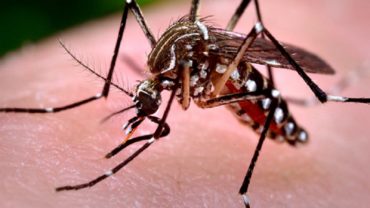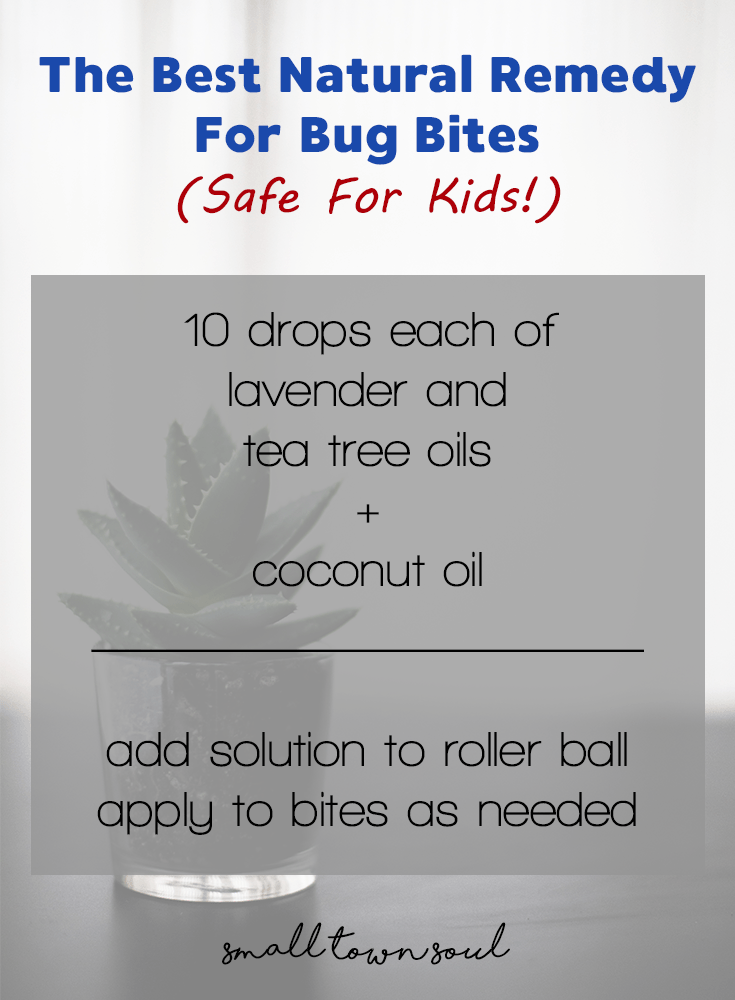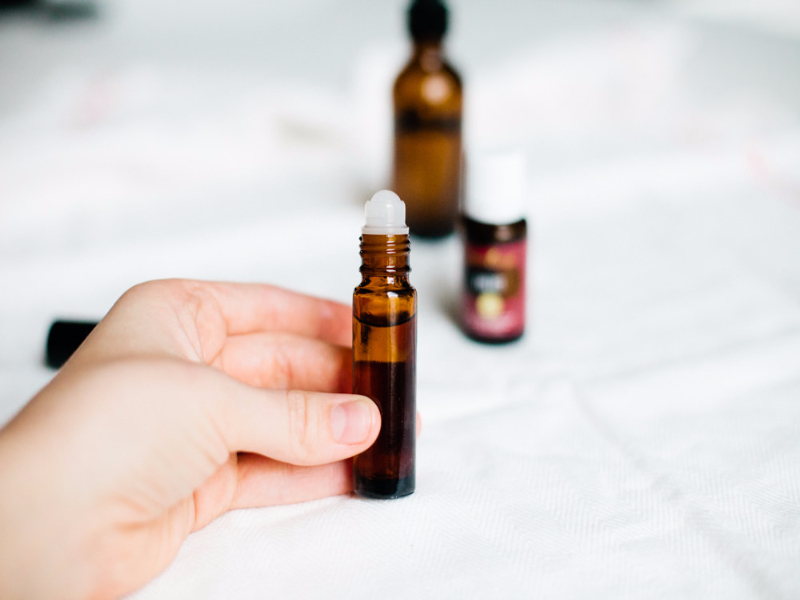via The Tick And Mosquito: When it comes the time of the year when mosquitoes are crowding your home, and you are sick and tired of swatting them and wave them away with your hand, you start looking for other solutions to this problem. There is certainly good reason to — mosquitoes are not only annoying, they carry serious diseases. While controlling mosquitoes outside is the best way to address the root cause, you sometimes need to get rid of mosquitoes indoors. Controlling mosquitoes indoors can be a little more tricky, because you hate to use harsh chemicals or mosquito repellents with deet in an indoor environment. Making sure you have a safe indoor environment is a balance between keeping mosquitos and diseases away, but also making sure that things like drinking water and air quality are top-notch. To that end, we focus many of our tips below on plant-based solutions, as reviewed by the NIH. To help you control the indoor environment for you and your family, we have come up with a list of the ten best ways to get rid of mosquitoes indoors, but first, focus on the obvious fix:
FIRST AND FOREMOST: FIX YOUR SCREENS AND DOORS
Many bug and insect issues can be solved through patching obvious gaps in your window screens and doors. If you do not have window screens, get some. You don’t need them for every windows, only the ones you like to have open often. A good, basic door strip is not expensive and will keep bugs out. It will also give an added benefit of keeping cold and hot air, and even mice, out. As for screens, fix the ones you have with a simple patch kit, and if you have none you can retrofit any window with an easy adjustable screen. Natural Indoor Mosquito Solutions
NATURAL INDOOR MOSQUITO SOLUTIONS
Once you have addressed windows and doors, it is time to make sure the mosquitoes that do make it inside don’t touch you or your family. Here are some of our favorite, safe, natural ways to repel skeeters.
1. Ultrasonic Bug/Pest Repeller
Ultrasonic repellers have been around in some form for a while, but manufacturers are making them smaller, more attractive, and more affordable today. While it is difficult to prove, the ultrasonic devices are said to emote a radio frequency that will be very unpleasant for pests like mosquitos, bugs, and mice. The frequency is not picked up by humans or most pets, so you should not be affected by it. Anecdotes suggest that these repellers work well in many cases, and given that they also might keep mice and ticks away, could be worth a try. Best of all, there is no chemical be released, only radio waves.
2. Camphor Oil
Camphor has been found to have the longest lasting effects as a repellant. All you have to do is light camphor in a room with all the doors and windows closed and leave it like this for 15 to 20 minutes. Your room will be mosquito free in absolutely no time. Camphor has many other benefits too, such as being an herbal solution for muscle pain, better breathing, and sedation.
3. Tulsi
Tulsi has been found helpful in killing mosquito larvae and keeping mosquitoes away. Simply plant a Tulsi shrub near your window as the shrub has properties which prevent mosquitoes from entering your house. Tulsi is an Indian herb which sometimes goes by the name “holy basil”, used for cooking in many Indian dishes. It is also known to be useful in treating mosquito bites when applied directly to the bite area.
4. Dry Ice
Because the carbon dioxide we exhale attracts mosquitoes, we are quite vulnerable to them. Dry ice emits carbon dioxide, and all you have to do is place some dry ice in a container and keep that container some distance away. When you see mosquitoes attracted to the container, close the lid. Although it is a time-consuming method, it is quite effective.
5. Garlic
With a strong pungent smell and mosquito larvicidal properties, garlic is one of the most efficient mosquito repellants on this list. All you have to do is crush a few garlic cloves and boil them in water for some time. Pour the water in a spray bottle and spray it around the room to prevent any mosquitoes from coming near you. Or, if you like cooking with garlic, heat up your favorite garlic-laden dish when you notice the mosquitoes are starting to get bad. You can get garlic at the grocery store, or find it here and have it shipped to your home.
6. Mosquito Traps
You can buy mosquito traps from the supermarket, find them online, or even make them at home. To make yourself a homemade mosquito trap, you need to cut a plastic bottle in half. Then, add brown sugar in hot water and mix it well. Once the mixture cools, pour it into the bottom half of the bottle and add yeast. Next, put the funnel half of the bottle on the bottom half in an upside down direction (with the bottle cap off). Wrap black tape around the bottle and place it in the mosquito vulnerable area. The solution needs to be changed periodically, according to directions.
7. Peppermint
A natural insecticide, peppermint can be sprayed as a mosquito repellant around your room, but it can cause skin irritation, so you must be cautious when spraying it. Also, the minty aroma of peppermint means that you do not have to be annoyed by the strong and pungent odors of bug sprays or other mosquito repellant remedies. One of our favorite natural repellent relies on peppermint as a main ingredient.
8. Tea Tree Oil
The anti-bacterial and anti-fungal properties of this essential oil make it one of the most effective when fighting off mosquitoes. It’s smell keeps the mosquitoes at bay and all you have to do it dilute a few drops of the oil in a few drops of water and apply this to your skin to prevent mosquitoes from coming anywhere near you. Also known as melaleuca, this oil is also a well-known herbal antiseptic that treats cuts, cold sores, and bug bites. This is another oil that not only can keep mosquitoes away, but can also treat the bite if you are too late to prevent them.
9. Coffee Grounds
Wherever you find stagnant water in or around your house (for example, if there has been heavy rain and you find a puddle of water in your front yard), sprinkle some coffee grounds in it. This will force the mosquito eggs present in the water to float to the surface, and they will be deprived of oxygen, which means that they will be killed before being hatched. Thus, you will have prevented new mosquitoes from being born.
10. Mosquito Repellent Plants
Catnip and feverfew are a few plants which can repel mosquitoes, and you can easily plant them in your flowerbed or windowsill to prevent mosquitoes from entering your home. You can even place them in your garden. As for indoors, you might be able to get a house version of the plant, or perhaps plant a bunch of them near your doorstep.
All of these remedies have been proven to prevent mosquitoes from entering your homes, and they are quite successful when used correctly. So, make sure you follow the instructions we have provided, and you will be able to remove many of the mosquitoes in your house. Obviously, these solutions are best done in conjunction with some basic home improvement steps, such as making sure your window screens are all intact and in good condition, and check all of your doors to make sure they completely shut and seal out bugs and air. Also, be sure that the spaces around your doors and windows are well-sealed and there are not gaps. This technique will also help you prevent other infestations, such as those from boxelder bugs, mice, or flies.





